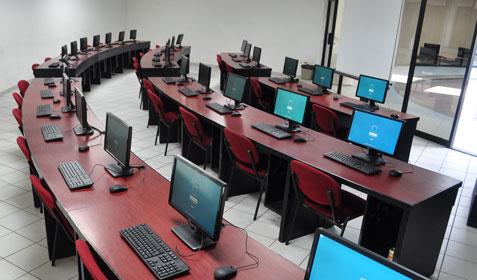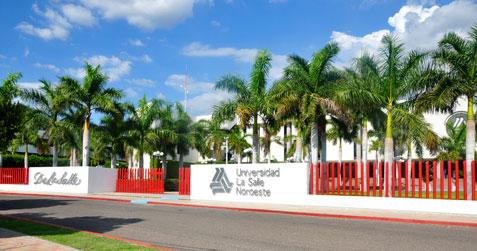CASO DE ÉXITO
Optimizes its budget and obtains high efficiency and zero computer downtime.

For Mr. Rubén Omar Vega, technical resources manager for both La Salle University as well as La Salle Institute, it was a challenge to find a desktop virtualization system capable of adapting to the hostile environment of northwestern Mexico, where temperatures average 104º F (with annual electricity bills of up to US$12,000 for cooling and air conditioning to protect computer equipment), while at the same time being a “green” solution offering greater durability at low cost.
Interested in learning about the technology and what they could do with it, they requested a demo, which was provided by KeOndas with a 40-unit pilot project administered with XenServer, whereby they initiated a scaled project that is still underway and has turned La Salle University and Institute of Ciudad Obregón, Sonora, into regional pioneers with this type of deployment.
The L300 is a zero-administration client. Once deployed, it is not necessary to manage applications, software, or drivers on the device. The vSpace Server handles firmware upgrades without the need for user intervention. Thanks to this feature, one of the main advantages for La Salle University has been having zero equipment failures. “So far, we have had zero computers freeze and zero resets, whether due to software or hardware, which has lightened our workload. In fact, our IT staff has even been able to dedicate time to other pursuits. We are very happy. Rather than spending our time putting out fires, this has allowed us to build new things,” added Mr. Vega.
Another of the initial problems solved thanks to the L300 was the standardization of computer sessions. On some occasions users had very different experiences due to the misuse of workstations, but now the experience is consistent across all of the stations, which is very important from an educational point of view.
With the L300, a complete solution can be deployed for less than half the cost of computers. Compared to a traditional computer, the cost of an L300 device is much lower. “With the investment required to set up a single traditional lab, we can now set up three,” added Omar. “A traditional lab generally lasts a maximum of five years, given that after three or four years problems arise with performance and with certain parts. We were attracted to the fact that with the L300, we could extend the life cycle of the lab by adding technological capacity and an additional processor. Should software requirements change in the future, we could invest more in the server and extend a laboratory’s life cycle without having to change any parts at all,” concluded Mr. Vega.

Thanks to these low costs, the Institute and the University provide benefits to 2,300 students, who use the various computer rooms and labs at full capacity for more than 60 hours a week for their academic activities.
Teachers and students are the primary beneficiaries of the new labs. Installing Microsoft Multipoint Server allows teachers to see student desktops and to share and receive files from students without the need to upload and download them from the Internet. Along with the total absence of noise, since fans are not used, class dynamics are improved and these rooms turn into teachers’ favorites. For their part, students “are very happy and feel like they are being accompanied by the teacher during class, which is very important for La Salle University, as it is part of our institution’s educational model and philosophy,” said Mr. Rubén Vega.
In addition to the multimedia support provided by L300 devices, this deployment has allowed maximum server use with modern, resource-hungry software such as Visual Studio and the Adobe CS6 Suites.
“The goal for August of this year (2013) is to be able to use the L300 to work with the engineering and 3D software departments, and the tests that we are doing include incorporating video accelerator cards into the servers. In conclusion, I would like to express how very satisfied we are with the support and assistance of KeOndas in deploying NComputing devices,” concluded Mr. Rubén Vega.
Suggested reading




